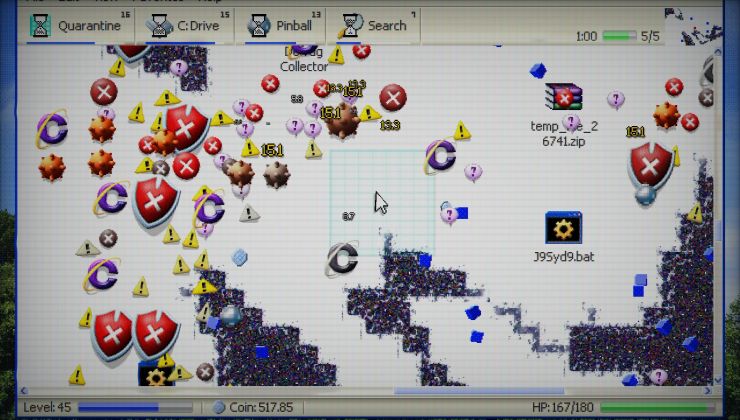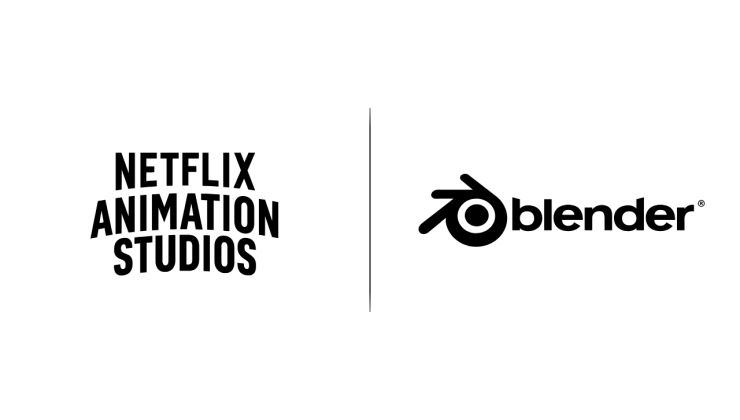By now you've probably heard either through us in our previous article or elsewhere that Valve are cooking something up to help Linux gaming even further. We have an idea on what one part of it is.
Valve already do quite a lot. There's the Steam Play Proton compatibility layer, the new container runtime feature to have Linux games both natively supported and Windows games in Proton run through a contained system to ensure compatibility, their work on Mesa drivers and much more.
In Valve's review of Steam in 2020 that we covered in the link above, one thing caught our eye and has been gaining attention. Valve mentioned for 2021 they will be "putting together new ways for prospective users to get into Linux gaming and experience these improvements" so what exactly does that mean? Well, a part of that might have already been suggested directly.
Back in November 2019, the open source consulting firm Collabora presented an overview of the work they have been doing funded by Valve. Towards the end of the talk they mentioned ongoing work towards foolproof and fast instant upgrades of Linux systems. Collabora mentioned it could work for specialised systems like consoles or other systems where you don't expect users to be highly technical. Leading into that, a Valve developer posted on Reddit to clarify more details around what Collabora were talking about:
The image-based updater work is part of a set of efforts to attempt to improve the experience of trying out Linux on a normal PC with live USB media, and instantly updating said media from the other OS without losing user data. There's no "locking down" involved, as it can easily be disabled by the user to fall back to the normal package manager.
Pierre-Loup Griffais, Valve
Linux has long been able to run directly from USB drives but what about the next stage of this evolution? That appears to be what Valve are hinting at in their 2020 review blog post.
Imagine if you will for a moment: a SteamOS-style USB stick, that's highly optimized for Linux gaming, with drivers ready to go and Steam pre-configured with everything it needs all direct from Valve and also this special update system to ensure it keeps on working. Now add in some pre-configured persistence so your games, files and so on stay on it and that sure sounds like a new way for users to get into and experience Linux gaming doesn't it? Steam Machines didn't work, so a way to properly experience Linux gaming in full on hardware people already own? That could certainly work.
That could be a much more interesting way to actually market and advertise Linux gaming too. It's not enough to have Linux distributions be fast and stable, and to have plenty of games available to play otherwise we would already be in a better position as a platform. An absolute game changer? No, but another very useful tool in the shed. The conversation changes with such an easy to use way to get involved. Burn it to a USB stick, load it on your PC and login to Steam, download a game and away you go — you're now gaming on Linux.
Not just for gamers though, this could be a pretty valuable tool for developers to test their games on Linux too. If it enables developers to quickly boot up a drive with Linux on, that's up to date and works with games, that's going to make things a lot easier in the long run from all sides.
USB drives have been ridiculously cost effective in the last few years too, along with plenty of USB3 options now existing for the speed and you can get quite a lot of storage on them so it would be a pretty fascinating move.
Over to you in the comments, what are your thoughts?
Quoting: alkazarIn any case, running an OS and games off of a USB stick is going to be a very poor experience and likely turn people off if anything.This. Exactly my tought. In an era where gaming in general is praising the blazing speeds of nvme drives... Is there any external enclosures that may deliver similar performances, at a descent price? If not, imo, it won't have much of an impact.
Edit: thinking about it... Could it be a "nice to have/side effect" caused by a wider initiative?
Last edited by Mohandevir on 16 Jan 2021 at 7:36 pm UTC
Burn it to a USB stick, load it on your PC and login to Steam, download a game and away you go — you're now gaming on Linux.... Yay?
Unless Valve intend to distribute ready-made sticks as a marketing gimmick to get people to try SteamOS before they buy the next generation of Steam console, I don’t see how that changes anything from the already long-established practice of burning ISOs on live USB or CD/DVD peripherals. I’m also struggling to see the benefit of "instantly updating said media from the other OS" rather than from the device itself. Other than updating everything automatically without giving the user any information, the update process couldn’t be much simpler than it already is, and having to reboot into the host OS to do it just sounds tedious.
I would hope that Valve have more in mind than that if they’ve been working on something that already mostly exists for 2-3 years. Otherwise, from a Windows user perspective, this just sounds to me like "Here’s a few extra steps you can take to be able to do almost everything you already do *(with slower data read/write)!"
Even if the plan is to make the next "Steam Machine" a USB device you plug into a host computer, I can’t imagine why someone would want that when they already have non-Steam games installed on their gaming PC and access to Big Picture if they want a couch/controller experience.
... I guess it would make more sense if they’re making progress on a game streaming service, where the host hardware no longer matters. I still don’t really see why they would especially want to sell that service on a Linux peripheral though, rather than just make clients for all operating systems as is already the case.
Quoting: aokamiWhat about the syscall emulation Collabora contribution (based in the seccomp mechanism, but ended up being a stand alone mechanism) making it's way in kernel 5.11 ?This has been talked about across other articles, and noted in the first link in this article where Valve clarified what the work was for - to help DRM work in Proton.
https://youtube.com/watch?v=B35XhcmBDDI
This looks promising and looks like a few back and forth discussions went on and a few patches made it to the kernel already.
https://git.kernel.org/pub/scm/linux/kernel/git/torvalds/linux.git/log/?h=v5.11-rc3&qt=author&q=gabriel+krisman
1. Temporary % reduction Valve gets for games released natively on Linux.
2. Longer, or bigger, % reduction for games released natively on Linux exclusively.
3. Gamescope production ready.
4. Continue work on Proton.
5. Find a big ally from the Linux world to use as a base/partner for SteamOS (RedHat, Suse, Ubuntu...)*
6. Release some 1st party temporary exclusives.
7. Hire me, if only for the lulz.
* In order of preference.
As many others, I don't see the USB stick as a solution, nor appealing.
Last edited by Arehandoro on 16 Jan 2021 at 8:13 pm UTC
- Reduce friction for gamers
- Reduce friction for game devs
- Reduce reliance on a single point of failure
so I'd say these features are the good ones from their perspective:
Quoting: eldaking2) A way to play your own games in public computers, like cybercafes (yes, they are still popular in some places). They do have tools already for those, so this could be a very convenient tool.
A portable Steam library that you can update anywhere with a good Internet connection is useful if your gaming machine itself has a terrible Internet connection. Much of the US has terrible Internet connections, but they can otherwise afford good gaming hardware and to buy games. PC gaming in China (which is a market they'd like to expand) generally uses cyber cafés rather than someone's own PC hardware. Those users could take their games with them, rather than having to download them again each session. For both of those scenarios you're reducing the friction of buying and updating large games.
4) Investigating the possibilities of having a full isolated OS, with standardized libraries and stuff, to run the games. Like the extreme version of containerization. This sounds like it is either quite distant, or would be a massive headache for us that already use Linux.
Making it easier for game devs to have a standardised testing target reduces the friction of them releasing their games for Linux. It's never been hard for them to do so, but "there are so many distros to choose from" and "I couldn't possibly afford a Linux machine to test on" are both excuses that game devs have used. Update the library with your build from anywhere, then boot the machine into your testing environment and you're good to test.
5) Just a normal "it is now easier to try out Linux on your computer without commitment, which helps Linux adoption in the long term". Which I don't quite doubt anymore Valve would do, but wouldn't be a big thing in itself.Valve's plan to prevent Microsoft from killing Steam works better the more credible Linux gaming is as an alternative to Windows gaming. Customers being able to just boot a Steam key rather than using whatever non-Steam mechanism Microsoft come up with reduces the threat of Microsoft using their power to kill Steam and Valve.
Quoting: Liam DaweFor me, there is a clear win, which is privacy. With Linux you have much better control of what is executed on your PC. If you have the knowledge, you can audit/modify the code, add new features you need etc. If you don't have the knowledge, you can rely on the many people who do. Of course, it is not 100% perfect, but it is dozens times better than what you get with proprietary OSes.Quoting: rcritSimilar to what Hori said, if I already have a Windows system capable of playing games why would I reboot using a USB stick to play them in Linux?And that is the real question no one as of yet has a true answer for other than the existing arguments for using Linux over Windows that many of us are already aware of, and probably already using Linux for. Part of the point though, is to make trying it as easy as possible. We shall have to wait and see how Valve handles it but the quote in the article is pretty clear IMO on this being something of a plan of theirs.
I think in the time many people have been shocked by Facebook move on whatsapp (basically killing any and all kind of privacy there), this is an argument that really matters. For me, this is one of the main features of Linux and FLOSS SW in general, it is privacy friendly, overall more secure and as a bonus is not easily taken over by company that don't give a damn about your privacy (mostly thx to being highly decentralized).
Overall, getting people to adopt Linux is both a matter of making it easier to access it and make people more privacy and FLOSS aware.
Valve are doing all they can, and if we were to be a tad objective - more than they should. But we are very grateful for that. We are on a nice progression as it is with the work of the WINE team, lest not forget them, and the Proton implementation. It's gone really far in the short amount of time it has been around which is something people seem to forget.
The "king" of gaming are online games. I think having EAC especially will be crucial for gaming on Linux. A stone in the shoe is, however, all these damn extra launchers popping up which are extra hurdles for people to navigate around.
Rome was not built in a day. It's still going to take many years to reach the arbitrary level people want Linux adaptation to reach.
2. Desktop Environment by Valve
3. New Big Picture mode
4. Proton with anti-cheat support
What I think would be helpful would be a way to seamlessly integrate third-party databases such as ProtonDB with the official client, and maybe even be able to load up a game's PDB page directly inside the steam client.
A financial incentive for developers to support an official linux version might get *some* developers over, but I think that incentive would have to be rather large for it to lead to officially supported games. What might be more realistic is for Valve to get more involved with game devs from an early stage in the development to allow the games to work flawlessly with minimal performance loss via Proton, and then have Valve themselves deal with linux support for those titles.
I also think Valve should strongly push the Vulkan API, as Vulkan games often have good performance across the board through Proton. Perhaps a financial incentive for supporting VK (or even OGL, but idk why someone would choose that over VK) in their games would help. They already need VK support for their Stadia builds anyway.
Speaking of Stadia. As far as I understand things, Google pays for the porting of popular games to Stadia in some cases. I wonder if it would be possible for Steam to get those versions on their store as well. I don't expect they'd get it for free, but maybe there could be some revenue sharing scheme put in place. If the game doesn't sell well on Linux, the having it there isn't hurting Stadia adoption. If it does sell well on Linux, Google (or maybe the porting studio) gets some money out of it.
There is no real benefit or motivation for new users to try the real linux.
It's a sensible next step. Let's them practice locking down the environment and maintain control within the walled garden without having to get involved in hardware. That way they can safely iterate features while removing variables.
They can also use this as a predictive indicator for future investment. This can provide hard numbers of how many people use it, continue to use it, or abandon it in favor of Windows.
Also on the plus side maybe they can fix that annoying windows 10 bug that pops up everytime I plug a Linux usb into a windows pc: "Something is wrong with this media, would you like to fix it?" No windows, no.
Last edited by denyasis on 16 Jan 2021 at 11:42 pm UTC
None of that is the point of the article though, which just pointing out that Steam want to increase visibility of Linux as a viable platform. This sounds pretty cool. And it won't affect us at all.
For my two cents, I'd like them to have made some inroads on EAC and BattleEye first. Most Windows games trying out a Linux key to see how Steam runs will want their big online games running, I think. And that's a big challenge, because of course Epic hate Valve. Not sure how that will play out. It's not like Epic will throw us a bone here - they probably already regret their Linux EAC client. No-one at Epic appears to care about Linux at all, least of their blind-sided CEO - I swear, if he calls Windows an open platform one more time... what a muppet.
The thing about Linux is that it's an excellent OS overall, partly due to its open source nature (which is why it's been able to take over so many areas of computing). And it's IMO a pretty dashed good general desktop OS. There are use-cases that need software that isn't sold for Linux, but I'd say for a very big percentage of users and maybe the majority, there's nothing they need that Linux won't give a good experience with, while it has quite a few advantages as a desktop OS that I don't expect I need to itemize in this community.
But as a pure gaming OS it's still somewhat lacking. Proton is imperfect and can't do games with most anti-cheat, drivers are still on average a bit behind although much better than they were, and a few other details. People game on Linux mainly because they're committed to doing other things with Linux and they don't want to use more OSes than they need.
So you replace Windows with Linux because you're cheesed with problems Windows has outside of gaming, that Linux doesn't have, or because you want things Linux does outside of gaming that Windows doesn't do . . . and then you game on Linux too and, depending just how hard core you are, find that it's decent.
So if this USB thing is oriented towards, and pushed as, a pure gaming experience it's not gonna tempt a lot of Windows users--they already have that, it's the general purpose OS experience that's a PITA.
(At the rate things are going it might actually be possible to sell Linux as a better gaming experience to Mac users though--MacOS is trying so hard to suck at gaming, and it's not like you can plug a Windows USB into a Mac and have it work)
Quoting: CatKillerA portable Steam library that you can update anywhere with a good Internet connection is useful if your gaming machine itself has a terrible Internet connection. Much of the US has terrible Internet connections, but they can otherwise afford good gaming hardware and to buy games. PC gaming in China (which is a market they'd like to expand) generally uses cyber cafés rather than someone's own PC hardware. Those users could take their games with them, rather than having to download them again each session. For both of those scenarios you're reducing the friction of buying and updating large games.Of course! I'd never thought about the ramifications of those PC Bangs . . . that's probably one reason why China always seems to stampede towards a couple of really popular games: The cybercafes install the most popular games on all their computers, so when you go there that's all you're gonna play.
I suppose this could have some impact on that . . . if the owners are willing to sit still for people using the things.
Quoting: 3zekielEveryone gave up on privacy ages ago. At least at a personal level--plenty of people are happy to support government action to improve their privacy, but not click on the (article/game/whatever) because someone's gonna harvest their data? Doesn't happen.Quoting: Liam DaweFor me, there is a clear win, which is privacy.Quoting: rcritSimilar to what Hori said, if I already have a Windows system capable of playing games why would I reboot using a USB stick to play them in Linux?And that is the real question no one as of yet has a true answer for other than the existing arguments for using Linux over Windows that many of us are already aware of, and probably already using Linux for.
Quoting: DuncIt's an intriguing idea. Back in the days of physical media, it occurred to me that you could ship a game with a live distro on the disc. The OS would always be optimised for the particular game, and you weren't dependent on Microsoft. Yes, you'd have to take varying hardware into account, but Knoppix was surprisingly good at that back in the day. That said, this was probably one reason that publishers never tried it: working on 99% of the PCs out there still leaves you with an angry 1%.Yeah, I thought about that too. And sure, there'd be hardware troubles, but you wouldn't have to worry about different versions of Windows, .dlls, or anything.













 How to setup OpenMW for modern Morrowind on Linux / SteamOS and Steam Deck
How to setup OpenMW for modern Morrowind on Linux / SteamOS and Steam Deck How to install Hollow Knight: Silksong mods on Linux, SteamOS and Steam Deck
How to install Hollow Knight: Silksong mods on Linux, SteamOS and Steam Deck